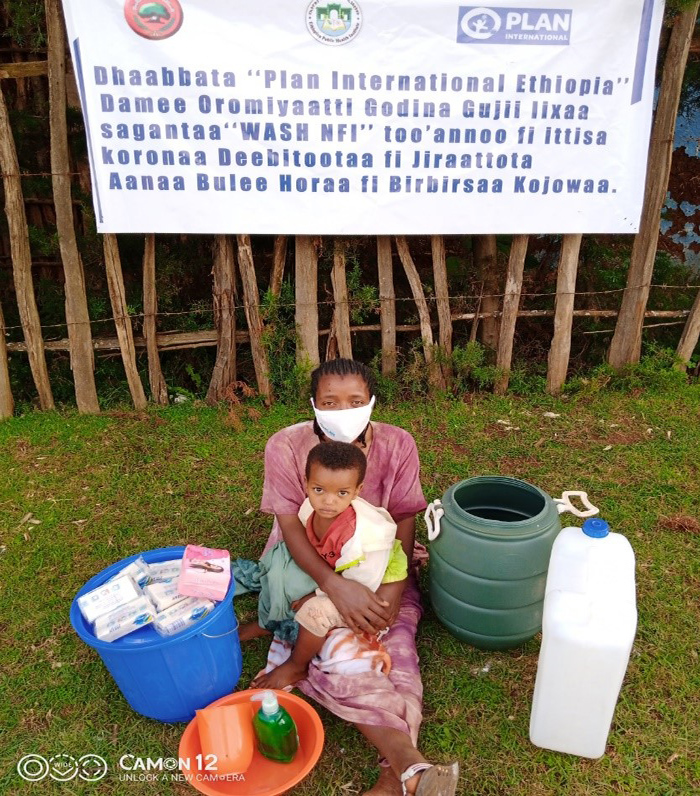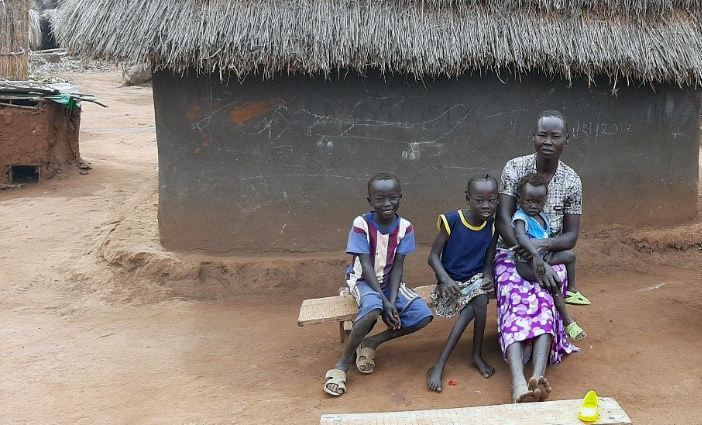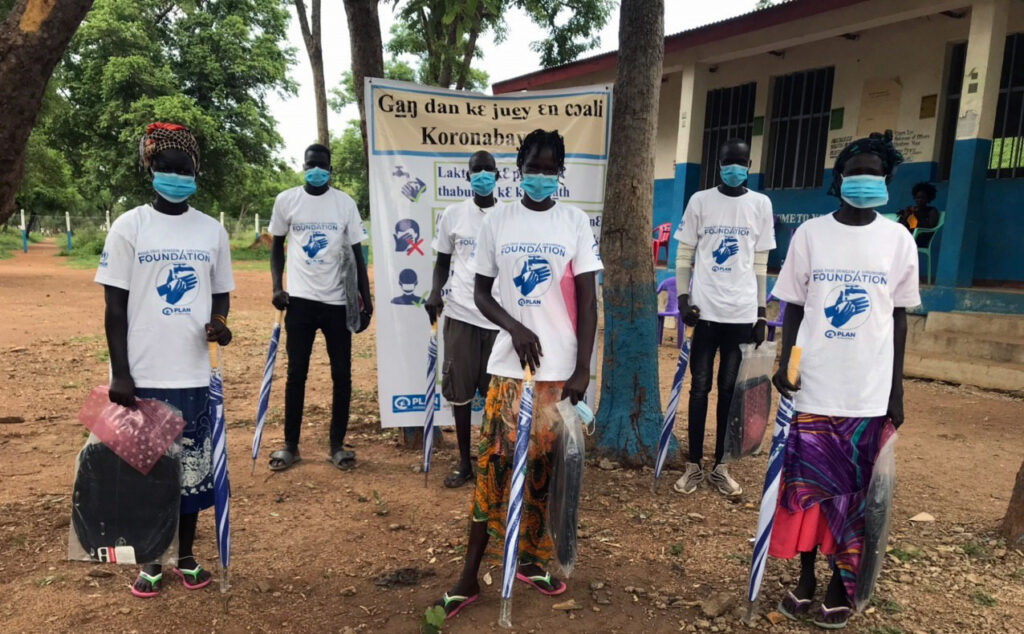”I am one of the poorest around here. I sell coffee and tea along the road, but since my husband passed away in September, I haven’t been able to afford soap and other sanitary products to protect myself and my children from COVID-19. But now I have received soap, buckets and jerrycans to help me look after my family,” says 35-year-old Mako Ware. She fled her home due to ethnic conflicts and is now at the receiving end of Plan International’s efforts to prevent the spread of coronavirus in Ethiopia. The country has one of Africa’s highest population densities, and residents in the country’s refugee camps struggle to practice social distancing and ensure adequate hygiene.
The Foundation and Plan International’s Danish chapter, PlanBørnefonden, have partnered for years in Togo. As the COVID-19 pandemic brought many of the planned activities to a halt, we agreed to divert some of the funds to prevention of COVID-19 in Ethiopia through securing access to clean water, hygiene information and sanitary products.
”Because of our long-term strategic partnership with the Foundation, we were able to act swiftly and reach out to refugees ind internally displaced people in Ethiopia. The implementation has been very smooth, and we have already received positive feedback from both refugees and government partners. But we have also been warned by the Ethiopian government and other NGOs that the worst is yet to come, and the needs within refugee camps are overwhelmingly big and continuous,” explains Bjarke Skødt Fabricius, PlanBørnefonden’s COVID-19 coordinator for Ethiopia.
- Find COVID-19 stats in locations with a Humanitarian Response Plan here: humdata.org
Clean water – only for drinking?
Refugee camps already lack clean drinking water, and prioritizing water for hand washing rather than drinking can be hard to understand. The situation is further complicated by various lockdown measures that make it even harder to earn enough money to buy soap and other household hygiene supplies. Demand is high, and the prices soar.
”Because of the COVID-19 crisis, it has been very difficult to buy soap, detergent and other supplies in the camp. In town, the prices have skyrocketed because of the increased demand. But thanks to the supplies provided, we can now wash our hands properly and maintain good personal hygiene,” says Itona Loba who fled South Sudan and lives in Sherkole refugee camp near Asossa. Itona has received soap and detergent, sanitary pads, buckets and jerrycans.
To ensure maximum impact of the products, the recipients are trained in using them in the best possible way. Awareness-raising about disease prevention is done via flyers, signposting and megaphone callouts. Necessary precautions are taken during all activities, and PPE eqiupment has been given to vulnerable refugees, coworkers, healthcare workers and relevant government staff.
Besides information and sanitary products to households, it is important to secure access to enough clean water. 5,000 L tanks have been placed in key areas in the camps. They are regularly refilled by water trucks. Furthermore, hand-washing facilities have been provided to make it possible to maintain the necessary personal hygiene.
Responsible for the health of 13 children
Life in a refugee camp is a struggle for survival. But 32-year-old Kaway Thiech, has a big heart. The mother of five children has taken on the responsibility of further eight orphans. She is poor and the only resources come from the UN World Food Programme. Sometimes she makes a bit of cash working the fields for local farmers, but the COVID-19 pandemic has stopped that opportunity.
”It is even more challenging to look after the children now. It is risky to visit the communities outside the camp because of the coronavirus. These products help me secure our personal hygiene and teach my children how to wash their hands properly. It gives me comfort and more hope for the future, and I hope the support continues as long as the virus is among us,” says Kaway Thiech.
PlanBørnefonden/Plan International’s actions to protect Kaway and other refugees in Ethiopia’s refugee camps is supported by the Poul Due Jensen Foundation (Grundfos Foundation) and will help 330,000 people, so far until September 2020.




